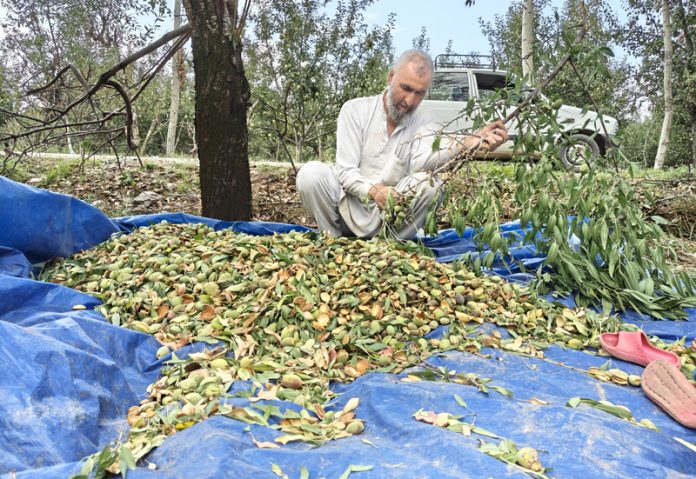The once-thriving almond orchards of Pulwama are rapidly disappearing as farmers increasingly switch to apple cultivation in pursuit of higher profitability. This alarming trend has resulted in a significant decline in almond production, threatening the region’s agricultural diversity and the livelihoods of those who once depended on this traditional crop. Apples have become the dominant cash crop in the region, with the support of the Horticulture Department, which provides better marketing strategies and introduces high-yielding varieties that promise greater returns. In contrast, almond growers are left grappling with outdated practices, poor market access, and a lack of high-yielding varieties that could make almond farming competitive. Farmers have voiced their frustration, citing the lack of attention and support from the Horticulture Department as a major factor in their decision to abandon almond cultivation. The absence of expert guidance and the lack of a dedicated almond market, or mandi, have compounded their struggles, leading to widespread disillusionment with almond farming.
The Chief Horticulture Officer has acknowledged the difficulties, noting that the almond industry has been hit hard by free trade agreements that have made it difficult for local almonds to compete due to inconsistent sizing. He also highlighted the department’s efforts to introduce high-density almond plantations, though these initiatives are hampered by a shortage of planting materials. This trend of gravitating towards apple cultivation due to its profitability should not come at the expense of traditional crops like almonds. The loss of almond orchards not only diminishes agricultural diversity but also erodes the cultural heritage of Pulwama, where almond cultivation has been a way of life for generations. To address this issue, the Horticulture Department must take decisive action to revitalise the almond industry. This includes the introduction of high-yielding almond varieties, improved marketing strategies, and the establishment of dedicated almond mandis. Additionally, consistent expert guidance and support are crucial to helping farmers navigate the challenges of almond cultivation. Balancing the promotion of both apple and almond cultivation is essential for the long-term sustainability of Pulwama’s agricultural economy.
Trending Now
E-Paper


